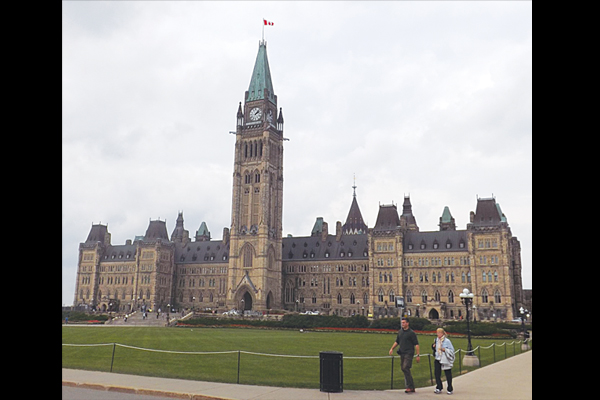Program launched to address low political engagement, especially among young people
Photo by Christine TomlinsonIn the last federal election, only 39 per cent of Canadians aged 18 to 24 voted—but a new initiative aims to raise those numbers.
The Your Question Period program was designed to allow Canadian citizens, rather than just politicians, the opportunity to pose their questions to the Senate.
Senator James Cowan, Leader of the Opposition in the Senate, is confident the program will increase voter engagement.
“Your Question Period encourages a role for people who otherwise would not be involved in politics, and people seem pleased with it,” he said.
In January of this year, Justin Trudeau kicked out all 32 Liberal senators from his caucus in an attempt to spur on Senate reform. Your Question Period was created in March by the former Liberal senators who are now sitting as independents.
To participate, Canadians go to the Liberal Senate Forum’s website and submit a question. If selected, they will be contacted to let them know which senator is asking the question and on what day. Afterward, they’ll receive a copy of the answer.
Cowan believes that questions coming straight from the public will force politicians to be more accountable. “Sometimes government will dance around the question if another senator asks it, but they must answer one from the public,” he said.
But not all believe the new program will fix Canada’s chronic problem with political engagement. Don Lenihan, a senior associate at the Public Policy Forum, said it doesn’t fix the underlying problems.
“There are other ways to encourage political participation,” said Lenihan. “The Reform Party used to do a similar program, but stopped due to lack of response. I think it’s a fine program, but it only treats the symptoms. It doesn’t ask why people are so politically inactive to begin with.”
Cowan said he believes the lack of political activity in Canada is a result of widespread cynicism.
“People ask if their politicians really care,” he said. “Scientists and public service can’t speak. Charities and organizations that criticize the current government get audited.” The Canadian Centre for Policy Alternatives is currently being audited by the Canada Revenue Agency. More than 400 academics from universities across Canada signed a petition in protest of the move, claiming it is politically motivated.
“We preach around the world how important democracy is, but it doesn’t happen in our own borders,” said Cowan. “This question period is part of showing people that government will listen.”
At the University of Ottawa, there’s also a lack of political participation. Voter turnout for the most recent Student Federation of the University of Ottawa (SFUO) election was only 11.6 per cent.
“General awareness of our initiatives and the work we do is key to increasing turnout,” said Chris Hynes, the SFUO’s vice-president of university affairs.
Hynes said he doesn’t believe the lack of turnout is indicative of a lack of political interest.
“From speaking to students I can tell that they do care about what is happening on campus,” he said. “The bottom line is students cannot always afford to be available. That is not to say that students are not engaged.”
Cowan said he wants more students participating in politics. He explained that since he and other former Liberal caucus members were forced out, they hold their own open caucuses. Cowan said they are considering holding future caucuses at the U of O to encourage students to get involved.




